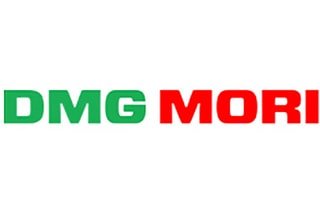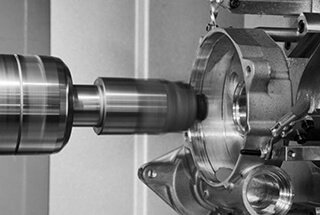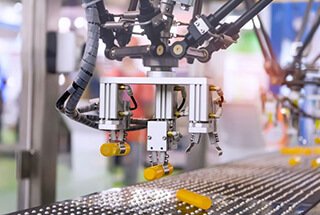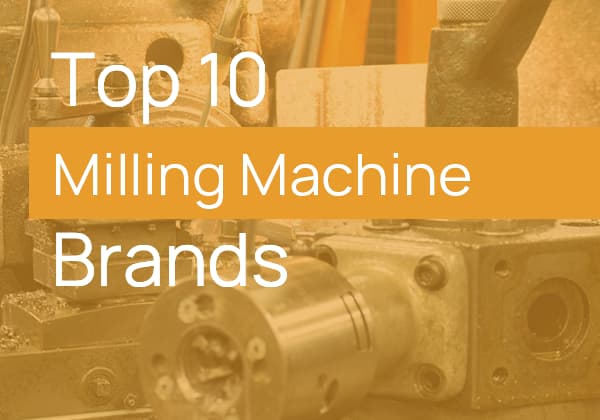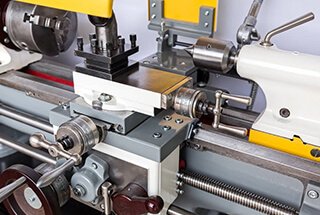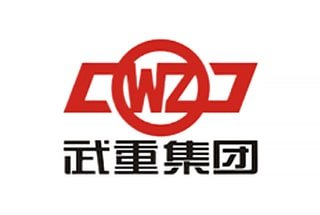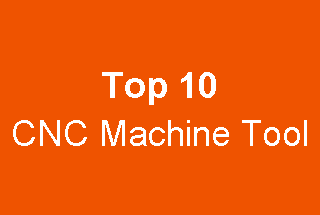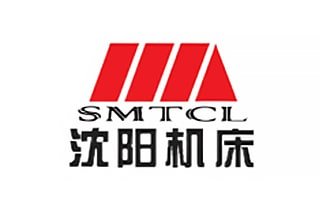
Are you in the market for a lathe machine but overwhelmed by the options? In this blog post, we’ll explore the key factors to consider when choosing a lathe manufacturer. Our team of experienced mechanical engineers will provide insights into the top brands, helping you make an informed decision. Discover how to select a lathe that combines quality, reliability, and excellent customer support.
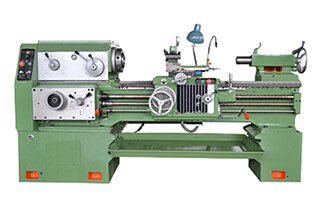
The lathe manufacturing industry has a rich history that dates back to ancient civilizations, where the first lathes were used for woodturning and metalworking. The significance of lathe manufacturing lies in its fundamental role in shaping materials and producing precision components essential for various industries, including automotive, aerospace, and manufacturing. Over the centuries, lathes have evolved from simple hand-operated machines to sophisticated CNC (Computer Numerical Control) systems, which have transformed manufacturing processes by enhancing accuracy and efficiency.
The lathe manufacturing market is experiencing robust growth, driven by an increasing demand for precision machining and efficient production processes. Recent estimates place the global market value at approximately $25.01 billion in 2018, with projections indicating a rise to $57.54 billion by 2032, reflecting a compound annual growth rate (CAGR) of 5.6%. The CNC lathe segment, in particular, is gaining traction, having been valued at $11.1 billion in 2023 and anticipated to grow to $18.78 billion by 2030. This growth is supported by the need for high-precision components in industries such as automotive, where manufacturers require intricate parts that meet stringent specifications.
The shift towards CNC lathes is one of the most significant trends in the industry. CNC machines enhance precision, reduce production time, and increase manufacturing flexibility. For instance, leading companies like Haas Automation and DMG Mori have implemented advanced CNC lathes that utilize real-time data analytics to optimize machining processes. Automation technologies are improving productivity and facilitating the implementation of Industry 4.0 principles, which emphasize smart manufacturing and data-driven decision-making. The incorporation of IoT (Internet of Things) capabilities allows for real-time monitoring of machine performance, enabling predictive maintenance that minimizes downtime and extends equipment lifespan.
The lathe market can be segmented into various categories based on machine type and application. CNC lathes dominate the market, accounting for a substantial share due to their advanced capabilities. Horizontal lathes remain popular for their versatility and cost-effectiveness. Applications in the automotive sector lead the demand for lathe machines, as they are essential for producing critical components such as engine parts and gearboxes. Additionally, the aerospace industry’s need for high-precision manufacturing continues to drive growth, underscoring the importance of lathes in producing lightweight and complex components. According to recent data, the automotive segment is projected to account for over 40% of the total market share by 2030.
Geographically, North America holds a significant share of the lathe manufacturing market, attributed to its strong manufacturing infrastructure and the presence of leading companies like Hardinge and Index. Meanwhile, the Asia-Pacific region is emerging as the fastest-growing market, spurred by rapid industrialization in countries like China and India, which are heavily investing in enhancing their manufacturing capabilities. This region is expected to witness a CAGR of over 6% from 2023 to 2030, driven by increasing demand for precision-engineered products.
Despite the promising growth trajectory, the lathe manufacturing industry faces challenges, including a shortage of skilled labor and high operational costs associated with CNC machines. Manufacturers are addressing these hurdles by investing in training programs to develop a skilled workforce and by exploring advanced manufacturing techniques to improve cost efficiency. Furthermore, ongoing advancements in automation and smart manufacturing present opportunities for companies to innovate and differentiate themselves in a competitive landscape. Strategies such as adopting collaborative robots (cobots) can enhance productivity while reducing labor costs, thereby positioning manufacturers for future success.
The history of lathe manufacturing is rich and varied, marked by the contributions of several key companies that have shaped the industry through innovation and quality. This chapter delves into the legacy of some of the most influential lathe manufacturers in history, highlighting their significant models and contributions.
Founded in 1906 by John and Miles O’Brien in South Bend, Indiana, South Bend Lathe Works quickly became a leader in the lathe manufacturing industry. By the 1920s, the company was producing a wide range of lathes, with reports indicating they built nearly half of all engine lathes in the United States by 1930.
One of their most influential models was the 9-inch Workshop Lathe, introduced in the 1930s. This model was celebrated for its precision and affordability, making it accessible to both industrial users and hobbyists. During World War II, South Bend lathes were extensively used for manufacturing military equipment, underscoring their reliability and precision.
The R.K. LeBlond Machine Tool Company, established in 1888 in Cincinnati, Ohio, has been synonymous with quality in lathe manufacturing. The company gained recognition for its wide range of machine tools, producing everything from small lathes to massive industrial machines.
During the Great Depression, LeBlond introduced the “Regal” line of lathes. These machines combined compact design with high specifications, making them essential during World War II, particularly for British forces. The Regal lathes were known for their robust construction and ease of use, which contributed to their widespread adoption in both military and civilian applications.
The Seneca Falls Lathe Company emerged in the late 1800s, initially focusing on woodworking lathes. Their treadle-powered “Gem” lathe, introduced around the turn of the century, became a favorite for its reliability in both the U.S. and the UK.
As the company evolved, it shifted towards producing heavier machinery. The Seneca Falls lathes were known for their precision and durability, making them suitable for a variety of industrial applications. Their commitment to quality and innovation laid the groundwork for specialized manufacturing that continued well into the mid-20th century.
Lodge and Shipley, another prominent name in American lathe history, is celebrated for its high-quality and durable lathes. Established in the late 19th century, the company became a cornerstone of the American manufacturing landscape.
Their lathes, such as the Powerturn series, were known for their precision and craftsmanship. The Powerturn lathes, introduced in the mid-20th century, featured advanced capabilities and robust construction, earning them a loyal following among machinists and industrial users. Even today, vintage Lodge and Shipley lathes are highly sought after for their reliability.
Alongside South Bend and LeBlond, companies like Bradford and Hendey were integral to the evolution of lathe manufacturing in the United States. Bradford lathes gained a reputation for their performance and durability in various applications, solidifying their place in industrial settings.
These manufacturers contributed significantly to the rich heritage of American machine tools, influencing contemporary designs and setting high standards for quality and precision. Their machines were integral in various applications, from automotive components to aerospace parts, reflecting their versatility and reliability.
The contributions of historic lathe manufacturers extend beyond their individual brands; they helped shape the entire machine tool industry. By introducing innovations that catered to both industrial and educational sectors, these companies set standards for quality and precision that resonate today. Their machines were integral in various applications, from automotive components to aerospace parts, reflecting their versatility and reliability. The legacy of these manufacturers continues to inform the practices and technologies of modern lathe production, ensuring their influence remains a vital part of the industry’s evolution.
When selecting a lathe manufacturer, the first considerations should be the company’s global ranking and reputation.
Additionally, the supplier’s experience and expertise, the quality of the machine, the commitment to customer service, and the ability to provide ongoing support and maintenance should also be taken into account.
This means that in addition to brand recognition and product quality, service and support are also important factors.

Please note that this ranking is based solely on the first letter of the brand name and does not reflect the strength of the enterprise.

AMADA, established in 1946 in Japan, is a renowned global machine tool manufacturer and a large multinational corporation specializing in sheet metal processing machinery, including CNC punching machines, bending machines, shearing machines, and laser cutting machines.
With its extensive market scale, diverse product lineup, superior technical performance, and well-organized management system, Amada has transformed into a publicly-listed group company that integrates product development, design, manufacturing, education, training, and after-sales services.
It has a global marketing network and is highly favored by customers worldwide.
Amada has 83 branches across the world, and its products are sold in more than 100 countries and regions.
The reason for its popularity is due to its rational mechanical design and user-friendly automation technology, which simplifies processing and results in annual sales of 200 billion yen.

DMG MORI was established in 2013 through the merger of Mori Seiki, a renowned Japanese machine tool manufacturer, and DMG MORI, a well-regarded brand in the CNC machine tool industry known for its cutting-edge technologies and solutions.
The DMG MORI brand combines the best of both German and Japanese machine tool manufacturing traditions. It embodies the strengths of its 65-year heritage from MORI SEIKI and its 143 years of experience with the DMG brand.
By integrating its sales and service, DMG MORI offers a comprehensive range of products and a unique market presence.
The company’s offerings encompass all aspects of sales and technical service, including customer service, training, and technical support.
With a workforce of approximately 7,400 employees at 164 national and international sales and service centers in 76 countries, DMG MORI is committed to providing outstanding support to its customers.

Founded in 1948, Dalian Machine Tool Group is a subsidiary of China General Technology Group and a leading provider of flexible manufacturing systems, complete automation technology, and equipment.
The company is widely recognized for its expertise in CNC machine tools.
The company was originally established as the Dalian Machine Tool Factory in 1948 and was later merged with other state-owned machine tool enterprises in Dalian to form the Dalian Machine Tool Group in 1995, with the Dalian Machine Tool Factory as its core.
In 2000, the Dalian Research Institute of Combined Machine Tools joined the group.
Since 2002, Dalian Machine Tool Group has expanded through the merger and acquisition of three established foreign machine tool companies, such as Ingersoll Production Systems (USA), Crankshaft Company and Zimmermann (Germany), and has established eight joint ventures with partners in the USA, Germany, Japan, Switzerland, and South Korea.

EMAG was founded in Germany in 1867 as the creator of the inverted vertical lathe.
Today, it is a top manufacturer of CNC inverted machine tools and a high-tech company specializing in research, development, production, and sales of CNC machine tools.
EMAG’s roots date back to 1867, when the company was established as a cast iron and machine tool manufacturer in Bautzen, Saxony.
In 1952, the company moved to its new location near Stuttgart and Ulm, close to its current headquarters in Salach.
After the move, the company started producing lathes, and in 1992, it constructed its first EMAG vertical lathe.
Unlike horizontal lathes, EMAG vertical lathes hold the workpiece using its spindle, making the loading and unloading process more cost-effective and suitable for high-precision mass production.
In the last 30 years, EMAG’s machines have developed into multi-functional, integrated production and machining centers for turning, drilling, boring, milling, grinding, hobbing, and laser machining.
Today, EMAG’s products serve two-thirds of all-round and non-round parts in the automotive industry. In addition to its three production sites in Germany, EMAG has a global presence.

Founded in 1937, Jinan No.2 Machine Tool is a well-known manufacturer of stamping equipment and a large-scale manufacturing base of forging and pressing equipment, as well as large heavy-metal cutting machine tools. The company is wholly state-owned.
In 1953 and 1955, Jinan No.2 Machine Tool developed the gantry planer and mechanical press, respectively.
In the 1960s, the company developed the world’s largest gantry planer.
The 1970s saw the development of flat broaching machines with cylinder blocks.
In the 1980s, the company made significant contributions to the development of China’s automobile industry, transitioning from the truck era to the car era.
Over different periods of national economic construction, the company has developed over 600 products and provided essential equipment support for various industries and fields in the country.
Jinan No.2 Machine Tool is a leading manufacturer of forging equipment and large heavy-metal cutting machine tools in China.
Its products include forging equipment, CNC metal cutting machine tools, automation equipment, casting machinery, CNC cutting equipment, and more.
These products are widely used in industries such as automotive, aerospace, rail transportation, energy, shipbuilding, metallurgy, molds, and engineering machinery and are exported to over 60 countries and regions worldwide.

Tsunezo Makino founded the company in 1937, specializing in the production of Type 1 vertical milling machines.
In 1958, Makino introduced the CNC milling machine and in 1966, they developed the Japanese machining center.
The company was listed on the Tokyo Stock Exchange in 1971, with a registered capital of 1 billion yen.
In 1978, Makino acquired a reciprocal interest in Heidenreich & Harbeck Werkzeugmaschinefabrik in Germany, and began selling their locally produced machine tools in the European market.
In 1981, they acquired LeBLond Machine Tools, Inc. in the US and renamed it LeBLond Makino Machine Tools, Inc.
They quickly launched their locally produced machine tools into the market, achieving localization of production and sales.
In 1980, Makino developed a CNC EDM machine and a DMS commercial automatic die and mold machining system, which were introduced to the market.
In 1993, Makino J. was established to provide flexible production solutions for industries such as automotive, aerospace, and specialized machining.

Founded in 1919, Yamazaki Mazak is a renowned manufacturer of compound turning and milling centers, 5-axis machining centers, vertical and horizontal machining centers, FMS flexible production systems, CNC units, laser cutting machines, and production support software.
The company’s products are recognized for their intelligent, complex, automated, energy-efficient, and environmentally friendly technologies, making significant contributions to various metalworking industries.
As a global company, Mazak has been operating internationally since the 1970s and currently operates ten production sites across the world in Japan (five), the United States, the United Kingdom, Singapore, and China (two).
The company also has over 70 technical and service centers located in different locations worldwide.
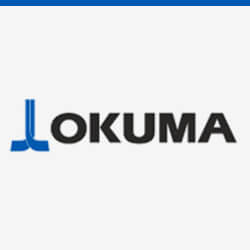
Established in 1918 in Japan, Okuma Corporation is a well-known all-in-one supplier of machine tools and control devices.
With over 100 years of history, the company is one of Japan’s largest manufacturers of CNC machine tools, specializing in research, development, production, and sales.
The company mainly produces general-purpose CNC lathes and machining centers, and develops and manufactures its own OSP CNC devices, which are known for their high rigidity, efficiency, stable precision, long life, and ease of operation.
Okuma has a global presence with branches in Taiwan, Thailand, Australia, and Shanghai, China.

Established in 1935, Shenyang Machine Tool Co., Ltd. is a well-known brand of machine tools known for its excellent quality and is a large listed company. It is also a comprehensive lathe manufacturing base in China.
The company was established in May 1993 and was listed on the Shenzhen Stock Exchange in July 1996. It is a subsidiary of Shenyang Machine Tool (Group) Co.
The Shenyang First Machine Tool Factory was established in 1935 and has been a leading manufacturer in China for over 60 years through continuous technical transformations and technological innovations.
Since its operation, the factory has supplied nearly 300,000 sets of metal cutting equipment to both domestic and foreign manufacturing industries and is renowned for its high quality.
In recent years, since 2010, Shenyang Machine Tool Co., Ltd. has been focused on improving product quality through the adoption of new technologies and materials.

Founded in 1923 in Germany, the Trumpf Group specializes in producing and selling CNC sheet metal working machines and medical equipment, with a focus on flatbed laser machines and accessories. The company is a family-run business.
The key technical parameters and performance indicators to consider when choosing a lathe manufacturer include:
Furthermore, the configuration of the CNC system is an important aspect to consider during selection, as it relates to the convenience of machine operation and the complexity of the machining program. The static and dynamic stiffness of the machine tool are key factors in ensuring machining accuracy.
Choosing the right lathe manufacturer is critical for ensuring that the equipment meets your specific needs and delivers reliable performance. Several factors must be taken into account to make an informed decision. Here are the key considerations:
Understanding the type, size, and material of the workpieces you intend to process is fundamental. Ensure that the lathe manufacturer offers machines compatible with the materials you will be working with, whether wood, metal, or plastics. The machine should possess the necessary power and rigidity to handle the size and weight of your workpieces, ensuring efficient and precise operations. For example, lathes designed for metalworking often require more robust motors and frame construction compared to those used for woodworking.
The precision and accuracy of a lathe are paramount, especially for applications requiring tight tolerances. Precision refers to the consistency of measurements, while accuracy indicates how close a measurement is to the true value. High levels of precision and accuracy are essential for producing components that fit together correctly and function as intended. For instance, in aerospace or medical device manufacturing, even a small deviation can lead to significant failures. Look for manufacturers that provide high-resolution encoders, which enhance precision by delivering accurate positional feedback, and backlash compensation, which minimizes errors caused by play in mechanical systems. Digital readouts (DRO), which display real-time measurements, further contribute to achieving high precision.
Evaluate the motor power and speed range of the lathe. The horsepower of the motor should be sufficient to handle the cutting forces required for your materials. Additionally, variable speed control options are important to adjust the spindle speed according to the material being machined. This adaptability enhances versatility and efficiency, allowing for optimal cutting conditions based on the specific material properties. For instance, softer materials may require higher speeds, while harder materials benefit from lower speeds to prevent tool wear.
Investing in a lathe made from high-quality materials, such as solid cast iron, ensures longevity and performance under daily use. A rigid construction helps to absorb vibrations during operation, which is critical for maintaining accuracy. Accurately ground beds and reliable parts contribute to the overall durability of the machine, making it a dependable asset in a workshop environment. High-quality components not only enhance performance but also reduce maintenance needs over time.
The reputation of the manufacturer and the quality of their products are crucial. Look for companies with a history of producing high-quality and reliable machinery. A good reputation often correlates with the longevity and performance of the machines. Additionally, good customer support and after-sales service are essential for technical assistance, maintenance, and repair needs, ensuring your lathe remains in optimal condition throughout its lifespan. Manufacturers that provide comprehensive warranties and support are often more trustworthy.
For those considering CNC lathes, evaluate the level of automation and intelligent features offered. Features such as tool change systems, automatic workpiece loading, real-time monitoring, and integration with CAD/CAM software can significantly enhance efficiency and productivity. These smart features not only streamline operations but also minimize human error, making them valuable additions to modern manufacturing setups.
Safety is a critical aspect of any machining operation. Ensure that the lathe is equipped with adequate safety features, such as emergency stop switches and guards, which are essential for the safety of the operators. A manufacturer that prioritizes safety in their designs demonstrates a commitment to user well-being. Implementing safety protocols and features reduces the risk of accidents and injuries, contributing to a safer working environment.
The adjustability and stability of the lathe’s components, such as the headstock and tailstock, are vital for accommodating different workpiece lengths and diameters. The lathe bed should be stable and rigid to handle heavy workpieces and high cutting forces. Smooth and precise adjustments are key to achieving reliable performance and high-quality results. A lathe that allows for easy adjustments can significantly enhance productivity by reducing setup times.
Balancing the cost of the lathe with its quality and features is important. While staying within budget is necessary, avoid compromising on quality to save money, as low-cost lathes may be made with lower-quality materials and components. Investing in a higher-quality lathe can provide better long-term value through improved performance and durability, ultimately resulting in lower overall operational costs.
Consider the compatibility of the lathe with various tooling options and accessories. Features like fast-change tool posts and tool holders can add to the efficiency and versatility of your workshop. Ensuring that the lathe can accommodate a range of accessories enhances its adaptability to different machining tasks, making it a more versatile investment for your operations.
Industry-specific lathe manufacturers cater to the unique needs and demands of various sectors, offering specialized machines that meet precise requirements. Here is an overview of manufacturers known for their expertise in specific industries, ensuring that the equipment they provide delivers optimal performance and efficiency.
The aerospace industry requires lathes capable of producing high-precision components from materials such as titanium and aluminum. These parts must meet stringent safety and performance standards. High accuracy and the ability to handle complex geometries are essential.
Kent Industrial specializes in precision lathes tailored for the aerospace sector. Their CNC and manual lathes, including big bore and teach lathes, are designed to handle complex geometries and tight tolerances. For example, Kent’s precision lathes are used in manufacturing turbine blades, where exact measurements and smooth finishes are crucial for performance and safety.
DMG Mori’s advanced CNC lathes are renowned for their precision and automation capabilities, making them ideal for aerospace manufacturing. Their multi-axis lathes enable complex part production with high accuracy, essential for the aerospace industry’s demanding standards. These machines are often used to produce critical components such as landing gear parts, which require meticulous craftsmanship and reliability.
In the automotive industry, lathes must efficiently produce high-volume components with consistent quality. Durability and speed are crucial factors to keep production lines moving efficiently.
Mazak offers a range of CNC lathes designed for the automotive sector, known for their high-speed machining and production efficiency. Their Quick Turn series achieves faster cycle times and superior surface finishes, making them ideal for producing engine parts and transmission components that require high precision and consistent output.
Doosan’s Puma series lathes are widely used in the automotive industry for their reliability and performance. These machines handle high-volume production with features like fast tool change capabilities, ensuring consistent and efficient manufacturing processes. They are particularly suited for producing parts such as brake discs and axle components, which demand high precision and durability.
The medical industry demands lathes that can produce intricate and precise components, often from biocompatible materials. The ability to achieve tight tolerances and exceptional surface finishes is critical.
Makino’s CNC lathes are celebrated for their exceptional precision, making them ideal for medical device manufacturing. Their machines achieve tight tolerances and high surface finish quality, crucial for producing medical implants and surgical instruments. For instance, Makino lathes are used to create components for orthopedic implants, where precision and smooth finishes are vital for patient safety and comfort.
Tsugami’s high-speed CNC lathes, such as the B0326-II, are designed for small and intricate medical components. These machines offer flexibility and precision, essential for manufacturing complex medical devices with stringent accuracy requirements. Applications include the production of dental implants and minimally invasive surgical tools, where detail and precision are paramount.
Below are answers to some frequently asked questions:
When considering the top lathe manufacturers in the industry, several companies stand out for their technological advancements, reliability, and global recognition. DMG MORI, with a robust presence in Japan and Germany, offers a wide range of CNC machines, including the highly regarded DMU 50 3rd Generation. MAZAK, founded in 1919, is known for its precision lathes and the innovative INTEGREX range, which combines turning and milling operations. OKUMA is another renowned manufacturer, offering multi-function turning centers like the MULTUS series, known for their reliability and long lifespan. MAKINO is recognized for high-speed machining centers, ideal for complex parts and mold production. Haas Automation, a major player from the United States, is celebrated for its versatile and precise CNC lathes. From China, Foshan Shunde Saiyu Technology Co., Ltd. has gained global recognition for its diverse and efficient lathe machines. While TRUMPF specializes more in laser processing, its machine tools are significant in the industry. Similarly, AMADA excels in CNC laser cutting machines but also produces other high-precision tools. Lastly, Ganesh Machinery is notable for its Swiss-type lathes, known for handling small and complex parts efficiently. These manufacturers are distinguished by their commitment to innovation, product reliability, and customer satisfaction, making them leaders in the lathe manufacturing industry.
Choosing the right lathe manufacturer for your needs involves a thorough evaluation of several key factors. First, consider the primary purpose of the lathe and the types of materials you will be working with, as different manufacturers specialize in lathes designed for specific materials such as wood, metal, or plastics. It’s essential to ensure that the lathe is compatible with the size and weight of your workpieces.
Next, look for manufacturers that prioritize precision and accuracy. Features like high-resolution encoders, backlash compensation, and digital readouts are crucial for delivering precise results. Additionally, the repeatability of the lathe is vital for consistent production.
If automation is important to your operations, consider manufacturers that provide advanced features such as tool change systems, automatic workpiece loading, and real-time monitoring. Integration with CAD/CAM software can also enhance the efficiency of your machining processes.
Evaluate the durability and maintenance aspects of the lathe. A robust frame and high-quality mechanical components are essential for withstanding daily use. Investigate the availability of spare parts and the manufacturer’s reputation for customer support and ease of maintenance.
It’s also important to assess the motor power and speed of the lathe. Ensure that it has sufficient power to handle the materials and workpieces you will be machining, and look for variable speed control options to accommodate different cutting operations.
Stability and adjustability are crucial features as well. A stable lathe bed is necessary for handling heavy workpieces, while smooth adjustments for the headstock and tailstock are essential for accommodating various workpiece lengths and diameters.
Research the brand reputation and customer support of potential manufacturers. Look for companies known for producing high-quality, reliable machinery, and check online forums and reviews to gauge user experiences and the quality of after-sales service.
Consider the size and capacity of the lathe, ensuring it aligns with your workshop’s requirements. Factors such as swing over the bed and maximum diameter and length of workpieces are critical to ensure the lathe meets your operational needs.
Finally, balance your budget with the quality and features of the lathe. While it may be tempting to opt for lower-cost options, they can compromise quality and lead to issues such as poor accuracy and reduced lifespan. Consider the long-term value and scalability of the lathe, and choose a manufacturer that offers a wide range of compatible tooling options and accessories to enhance your workshop’s versatility and efficiency. By carefully evaluating these factors, you can select a lathe manufacturer that meets your specific needs, ensuring high performance, efficiency, and long-term reliability.
Various types of lathes are available from different manufacturers, each designed for specific applications and functionalities. Engine lathes, also known as center lathes, are the most common type and are versatile for a range of turning operations like facing, threading, and drilling. Turret lathes, on the other hand, are geared towards mass production, featuring a revolving turret that allows for quick tool changes, making them ideal for producing identical items efficiently.
CNC lathes utilize computer programming for precise automation, suitable for complex machining tasks in high-volume manufacturing environments such as automotive and aerospace industries. Bench lathes are compact and designed for precision work on small parts, often used in jewelry making and similar crafts. Toolroom lathes offer enhanced precision and are modified engine lathes, ideal for creating tools and dies.
Speed lathes focus on high-speed operations, commonly used for finishing tasks in woodturning and metal polishing. Automatic lathes automate tool changes and feeding, making them efficient for mass production but typically more costly. Special purpose lathes are custom-designed for specific heavy-duty applications, while vertical turret lathes cater to large workpieces with a vertical spindle for efficient machining. Capstan lathes, similar to turret lathes but for smaller pieces, allow quick tool changes for medium to large-scale production. Lastly, wood lathes are specifically tailored for woodworking projects, differing in design and cutting tools from their metalworking counterparts.
Understanding these different types of lathes is essential for selecting the appropriate machine to meet specific manufacturing needs.
Yes, lathe manufacturers often provide comprehensive support and maintenance services to ensure their equipment operates efficiently and minimizes downtime. These services typically include regular maintenance, on-site repairs, preventive maintenance programs, and the use of genuine spare parts. Manufacturers like INDEX TRAUB offer benefits such as minimization of machine failures, early recognition of wear, and cost control through maintenance packages. Other companies, while not exclusively lathe manufacturers, like Exact Machine Service and Peiffer Machine Services, also provide essential maintenance services including inspection, calibration, upgrades, and rebuilds. These services are crucial for maintaining consistent production conditions, extending machine lifetime, and enhancing performance, ultimately supporting the optimal operation and longevity of lathe equipment.
Yes, there are specific lathe manufacturers that cater to industries like aerospace and automotive, focusing on high-precision and specialized machining needs. Companies such as Intrex Aerospace and Avantus Aerospace are notable for their expertise in producing precision CNC lathe components for aerospace applications. They utilize advanced machinery, including 3, 4, and 5-axis lathes, to handle complex shapes and materials like titanium and Inconel, which are essential in aerospace manufacturing.
In the automotive sector, manufacturers often require lathes that can produce parts with high tolerances and repeatability. Companies like DMG Mori and CMZ provide CNC lathes that are widely used in automotive manufacturing for producing critical components with the necessary precision. These manufacturers often comply with stringent industry standards, ensuring their lathes and services meet the high-quality requirements of both the aerospace and automotive industries.
Overall, while there are dedicated service providers that utilize lathes for aerospace and automotive applications, the manufacturers of these lathes also play a crucial role in supplying the advanced technology needed for precision machining in these specialized fields.

